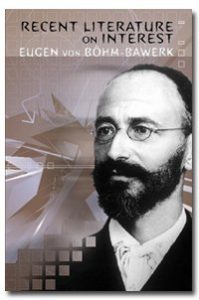
This book by Eugen von Boehm-Bawerk is a supplement to his two great books, Capital and Interest and The Positive Theory of Capital. Here he takes on alternatives to the Austrian theory he had previously presented, and thereby clarifies the case. It is an excellent illustration of the economist’s stunning patience and capacity for thorough exposition.
It begins with an introduction by the historian of thought William A. Scott, who praises these essays to the skies. Boehm-Bawerk then takes on a number of new competitors to the Austrian theory: The agio theory, use theories, the abstinence theory, the labor theory, the productivity theory, the exploitation theory, and the eclectics.
It’s incredible, by the way, how each of these theories continues to be “discovered” by economists in our own time, who, being unaware of the history of thought, are under the impression that they are advancing science when in fact they are only digging up old fallacies.
In each case, he shows the fallacies and missteps of all alternatives to the time-preference theory, leaving no doubt as to the origin and nature of interest.
Writes Scott: “Bohm-Bawerk’s review of the literature of interest produced during the fifteen years preceding 1900, is presented herewith in translation, and needs no description or commendation. It speaks for itself. It is the hope and the belief of the translators that the English-speaking world will accord to this little book the same welcome they gave to the translation of the first edition.”
In our own time, these rare essays constitute what is really a lost book in the history of the Austrian tradition. It is indispensible for understand both the theory and the mind of the economist who was the teacher of Mises and the master of the theory of interest.
197 pages, paperback, 2007
Author: Eugen von Boehm-Bawerk
Binding: Paperback
Manufacturer: Ludwig von Mises Institute
Product group: Book
Studio: Ludwig von Mises Institute
Publication Date: 2007
Publisher: Ludwig von Mises Institute
 Swiss Economicblogs.org
Swiss Economicblogs.org
